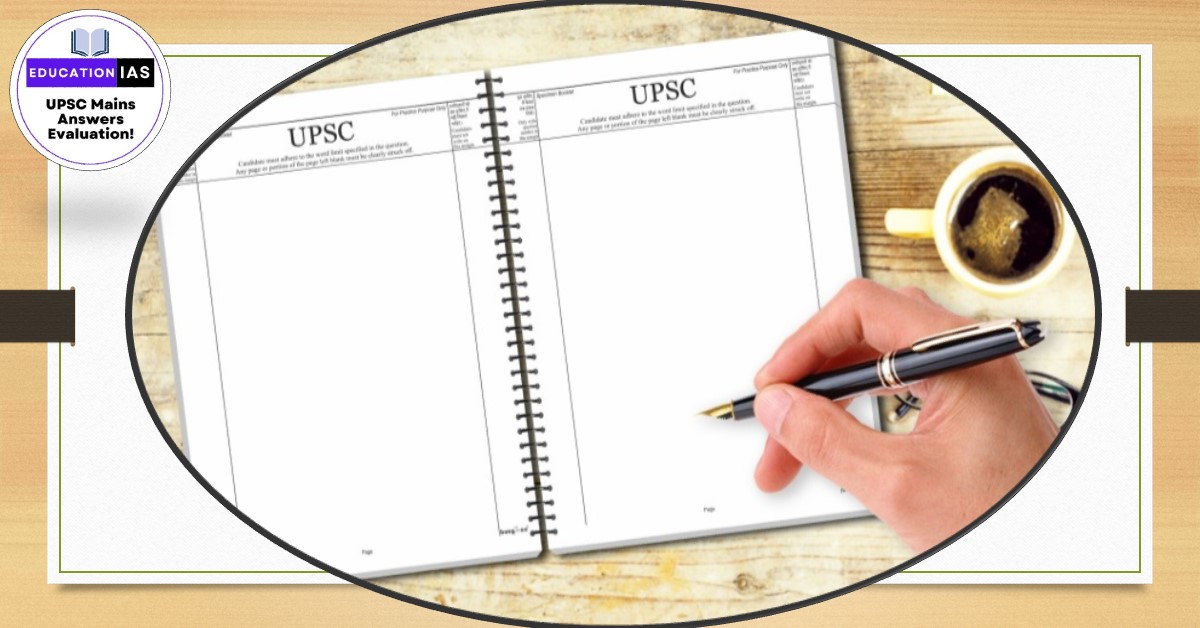Que. Has digital illiteracy, particularly in rural areas, coupled with lack of Information and Communication Technology (ICT) accessibility hindered socio-economic development? Examine with justification.
क्या ग्रामीण क्षेत्रों में विशेष रूप से, डिजिटल निरक्षरता ने सूचना एवं संचार प्रौद्योगिकी (आइ.सी.टी.) की अल्प-उपलब्धता के साथ मिलकर सामाजिक-आर्थिक विकास में बाधा उत्पन्न किया है? औचित्य सहित परीक्षण कीजिए।
Structure of the Answer
(i) Introduction: Start by defining digital illiteracy and ICT accessibility. Briefly explain how these barriers affect socio-economic development, particularly in rural India.
(ii) Main Body: Discuss the impact of digital illiteracy and lack of ICT on education, employment opportunities, government services, and rural development. Provide examples.
(iii) Conclusion: Summarize how addressing digital illiteracy and improving ICT access is essential for socio-economic development, especially through policy interventions and training programs.
Introduction
Digital illiteracy and limited ICT accessibility in rural India are major obstacles to socio-economic growth. These barriers prevent people from accessing education, employment, government services, and modern development initiatives, deepening inequality and hindering overall progress.
Impact on Education
Digital illiteracy prevents rural students and teachers from benefiting from online learning resources and modern educational tools.
(i) Limited Access to Online Education: Rural students cannot access e-learning platforms, leading to educational disparities compared to urban students.
(ii) Lack of Digital Teaching Tools: Teachers in rural areas are often not trained in using digital tools, reducing the effectiveness of their teaching methods.
(iii) Inequality in Educational Opportunities: The digital divide worsens education inequality, as rural students miss out on digital learning opportunities that urban students enjoy.
(iv) Higher Dropout Rates: Students who cannot engage with digital resources often struggle to keep up with the curriculum, leading to higher dropout rates.
(v) Limited Access to Vocational Skills: Many rural youth miss out on skill development courses available through digital platforms, restricting their future employment prospects.
Impact on Employment Opportunities
The lack of digital skills and ICT access reduces employment options for rural populations, limiting their participation in the digital economy.
(i) Limited Access to Digital Jobs: The rise of the digital economy excludes those without digital literacy from jobs in IT, e-commerce, and online freelancing.
(ii) Exclusion from Online Job Portals: Job seekers in rural areas cannot access online job portals or apply for government employment schemes, reducing their employment chances.
(iii) Skill Gap: Many modern jobs require digital skills, leaving rural workers uncompetitive in job markets, especially in skilled sectors like technology and services.
(iv) Missed Entrepreneurial Opportunities: Rural entrepreneurs cannot utilize digital platforms for marketing or online sales, hindering their business growth.
(v) Stagnant Income: Due to the lack of access to high-paying digital jobs or industries, rural workers remain in low-wage, labor-intensive jobs.
Barriers to Accessing Government Services
Increased reliance on e-Governance and digital government services makes it difficult for rural populations to access essential services.
(i) Difficulty Accessing E-Governance: Many government services, like land records or subsidy transfers, are now online, leaving digitally illiterate people excluded.
(ii) Exclusion from Welfare Programs: Programs like PMAY (Pradhan Mantri Awas Yojana) and MGNREGA require digital applications, excluding those without internet access.
(iii) Increased Bureaucratic Challenges: Navigating online government portals is difficult for rural populations, leading to delays and frustration in accessing services.
(iv) Limited Access to Health Services: Telemedicine and digital health records cannot be accessed by rural residents without the necessary ICT tools and digital knowledge.
(v) Disenfranchisement: Digital illiteracy and lack of ICT access prevent rural populations from participating in online voting or accessing election-related information.
Effect on Rural Development Initiatives
The lack of ICT in rural areas severely limits the success of rural development programs aimed at improving living standards.
(i) Inability to Access Agricultural Technologies: Farmers cannot access digital agricultural tools or online market platforms, reducing productivity and income.
(ii) Slow Infrastructure Development: Programs like PMGSY (Pradhan Mantri Gram Sadak Yojana) rely on digital systems for tracking progress, which is not feasible without proper ICT.
(iii) Limited Financial Inclusion: Rural populations lack access to digital banking, hindering their ability to save, apply for loans, or receive government subsidies.
(iv) Inefficient Disaster Management: ICT tools are crucial for early warnings and relief during natural disasters, but rural areas often lack access to these services.
(v) Barriers to Private Sector Engagement: Rural areas struggle to implement government-private sector partnerships due to insufficient digital infrastructure, delaying developmental progress.
Conclusion
Digital illiteracy and inadequate ICT access significantly hinder socio-economic development in rural India. Addressing these challenges through policy interventions, digital literacy programs, and improved infrastructure is essential for empowering rural communities and ensuring inclusive, sustainable development.
